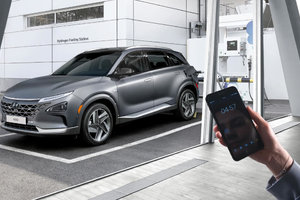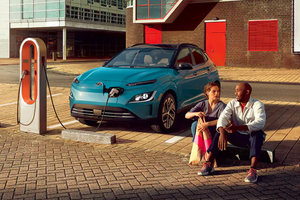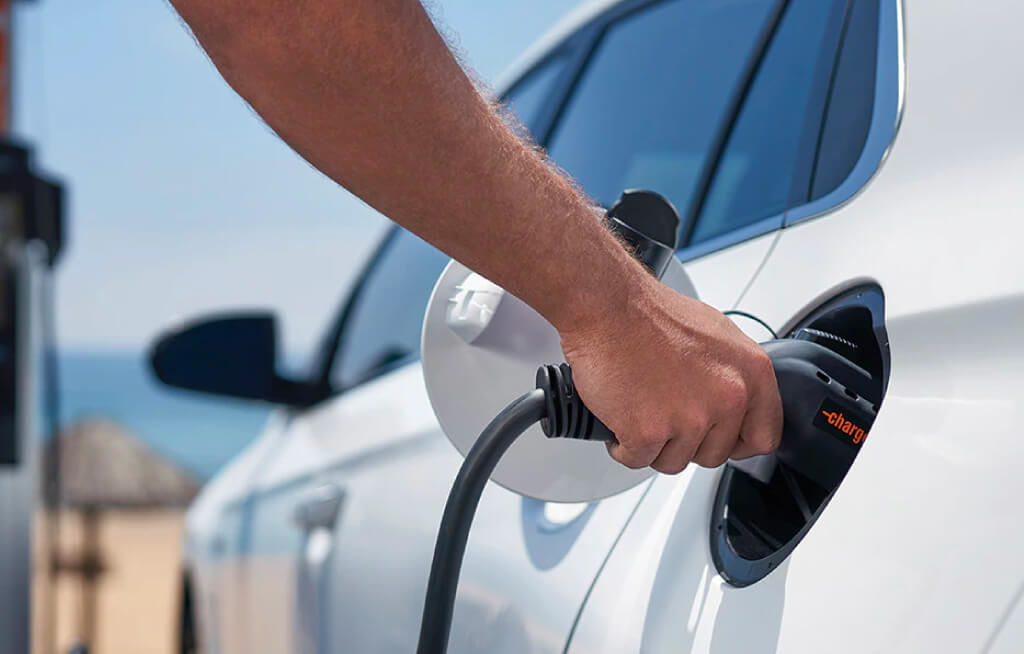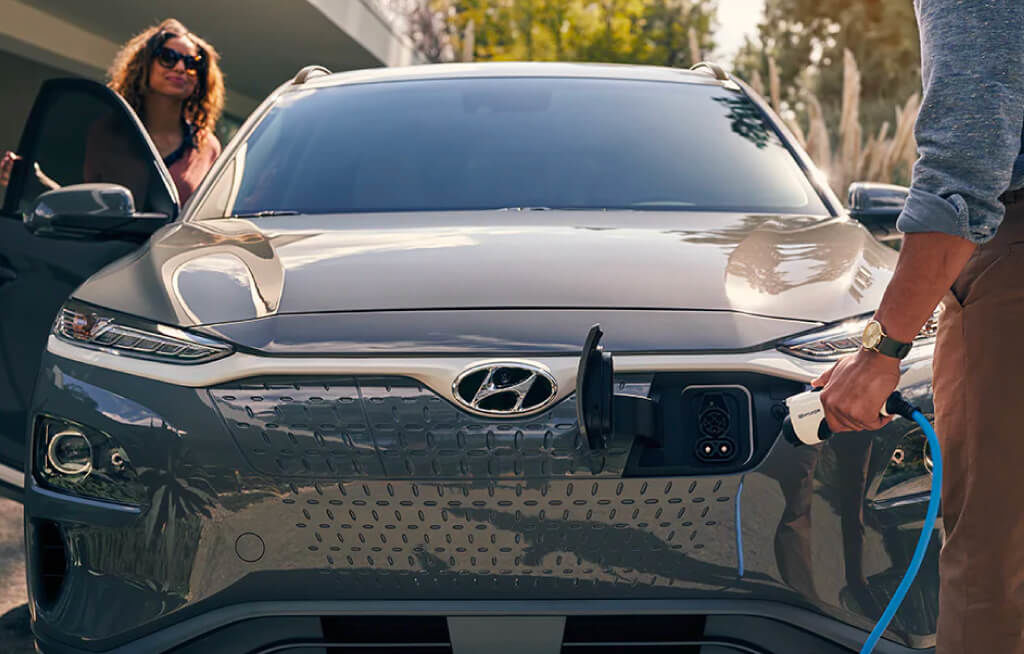As gas prices and global warming concerns increase, the demand for electric vehicles also increases. For over 10 years, Hyundai has dedicated its time and resources to create electric vehicles (EVs) and hybrid models to reduce a driver's carbon footprint and vehicle emissions. With a goal for full electrification by 2040, Hyundai views EVs as the way of the future.
There are many different types of EVs and many positive reasons for buying one as your daily driver. Here are a few things to consider.
Types of Electric Vehicles
There are several different types of electric vehicles, but Hyundai focuses its electrification efforts on four main types:
- Electric Vehicles (EVs) - As their name suggests, EVs rely solely on electric power. They feature zero emissions thanks to their electric powertrain and lack of a gasoline engine. Depending on battery size, most EVs offer an impressive driving range, lasting for hundreds of kilometres before they need to be charged. And charging is easy, whether at home, at work, or at a charging station on your journey.
- Hybrid Vehicles - Hybrid vehicles are the most accessible of the EV powertrain options, both at Hyundai and at other manufacturers. They combine a gasoline engine with an electric battery pack to offer driving fun, lower emissions, and peace of mind. The engine and battery work together to boost fuel economy, reducing your trips to the gas station.
- Plug-in Hybrid Electric Vehicles (PHEVs) - PHEVs are a great compromise for drivers who want to experience an EV but are not ready to rely solely on electricity and charging stations. A PHEV features a larger battery compared to a traditional hybrid, which usually offers between 20 and 60 km of electric power before switching automatically to the gasoline engine.
- Fuel Cell Vehicles - A fuel cell electric vehicle uses hydrogen and oxygen gases in a fuel cell stack, which powers the vehicle through an electrochemical process. There is no gasoline for a fuel cell vehicle, and the only exhaust emission is pure water vapour.
Charging Stations
Purchasing an EV or PHEV does not have to feel confining - there are over a dozen charging station locations in Mississauga, and as EVs grow in popularity, more will be added. There are three ways to charge your ride:
- Level 1 Charging uses a 120-volt, and a conventional three-prong plug found throughout your home. This is the slowest type of charging and may take a day or two to charge a full EV.
- Level 2 Charging uses 240-volt charging, like the outlet for an electric dryer and cuts charging time by more than half. Drivers with EVs should consider installing one at their homes.
- Level 3 Charging, also known as DC fast charging, uses direct current (DC) to quickly charge a vehicle. This type of charging is found at public sites.
Hyundai's 2022 Range of Electric and Hybrid Vehicles
Hyundai offers the widest range of electrified vehicles in Canada, including EVs, PHEVs, hybrids, and fuel cell vehicles. They come in all shapes and sizes to fit individual and family needs as necessary.
Hyundai's most robust lineup is with traditional hybrid models and includes Canada's most fuel-efficient vehicle:
- 2022 Elantra Hybrid sedan
- 2022 IONIQ Hybrid sedan (Canada's most fuel-efficient car, getting over 1,125km on a single tank of gas)
- 2022 Sonata Hybrid sedan
- 2022 Tucson Hybrid SUV
- 2022 Santa Fe Hybrid SUV
Hyundai offers three EV models:
- 2022 IONIQ5 SUV
- 2022 KONA Electric SUV
Hyundai offers one sedan and two SUVs in its PHEV lineup:
- 2022 IONIQ Plug-in Hybrid sedan
- 2022 Tucson Plug-In Hybrid SUV
- 2022 Santa Fe Plug-in Hybrid SUV
EV Incentives in Ontario
Choosing a Hyundai EV in Canada is a great decision, as not only does Hyundai offer a wide range of EVs, PHEVs, traditional hybrids, and fuel cell vehicles, but you can also enjoy many other benefits.
- Depending on the vehicle purchased, drivers can receive up to $5,000 in government incentives, which significantly reduces the difference in purchase price between a gas model and its EV or PHEV counterpart.
- With an Ontario Green Vehicle license plate, you can gain unrestricted access to high occupancy vehicle (HOV) lanes and high occupancy toll (HOT) lanes, regardless of the number of passengers.
- With the best warranty program in the business, Hyundai provides:
a. 5-year/100,000 km comprehensive limited warranty
b. 5-year/unlimited km roadside assistance program
c. 8-year/160,000 km hybrid and plug-in hybrid system warranty
FAQs
You might still have some questions about going electric. Here are some answers.
• How long does it take to charge a vehicle?
a. It depends on whether you have an EV or PHEV, how far the battery has drained, and what type of charging you are using. A Level 2 charger will add around 40 km per hour of charging.
• Are Electric cars worth it?
a. Yes. You are reducing your emissions, saving the environment, and drastically cutting your gasoline costs.
• How far can electric cars go?
a. It depends on the vehicle, but the 2022 Hyundai IONIQ5 has a predicted range of 480 km, and the 2022 Hyundai KONA offers a range of 415 km.
• Are electric cars cheaper to run?
a. Yes. Your electric bill will increase slightly if you charge at home, but it will not come near the monthly cost that you used to pay for petrol.
• What are the best electric cars in Canada?
a. Hyundai offers a robust lineup of electric vehicles, including the Hyundai Elantra hybrid, which is the most fuel-efficient vehicle in Canada.
• Which is the most reliable electric car?
Reliability varies between cars, but the Hyundai IONIQ5 and KONA are both incredibly reliable EVs.














